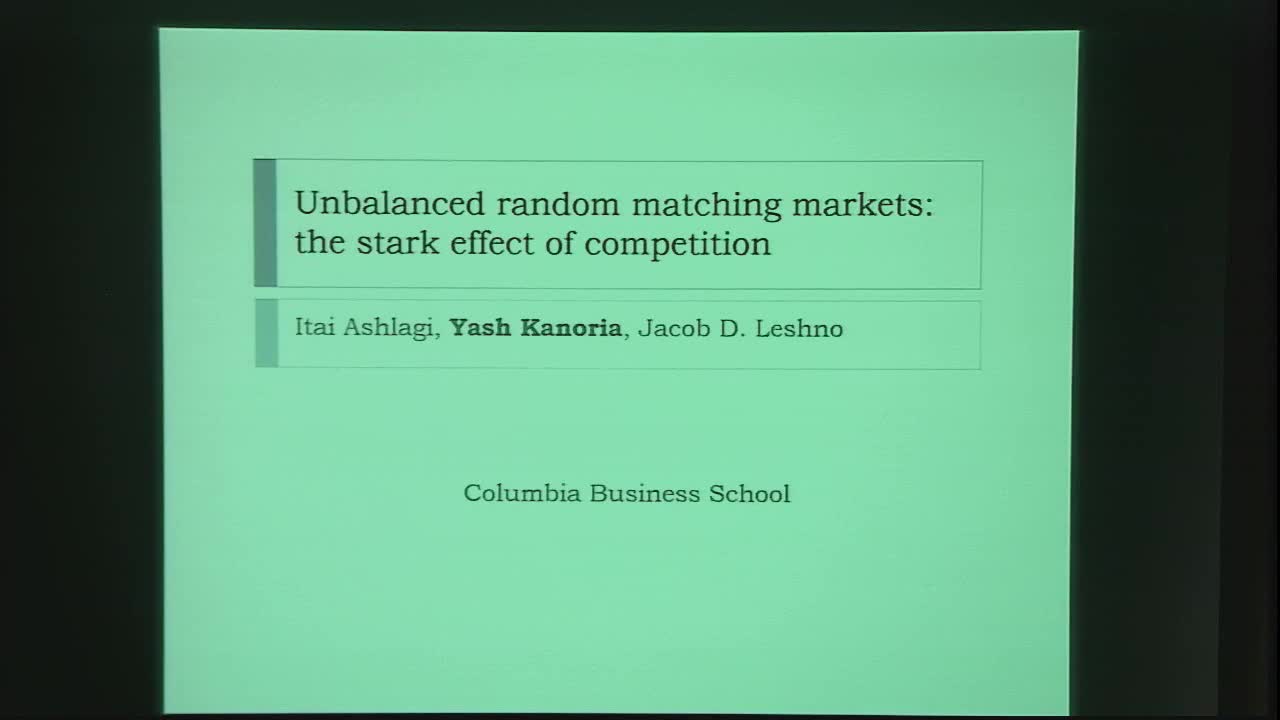Unbalanced Random Matching Markets: The Stark Effect of Competition
Presenter
May 20, 2015
Keywords:
- Matching models
MSC:
- 91B68
Abstract
We study bilateral matching markets such as marriage markets, labor markets, and school/college admissions, that allow participants to form partnerships with each other for mutual benefit. We study competition in matching markets with random heterogeneous preferences. First, we find that such markets are extremely competitive. In unbalanced markets, each agent on the short side of the market is matched to one of his top preferences and each agent on the long side does almost no better than being matched to a random partner. Second, we find that even the slightest imbalance leads to competition that yields an essentially unique stable matching. Our results suggest that any matching market is likely to have a small core, explaining why empirically small cores are ubiquitous.
We obtain broadly similar results in random assignment markets (matching markets with transfers).
Joint work with Itai Ashlagi and Jacob Leshno; and Daniela Saban and Jay Sethuraman.
Paper: “Unbalanced random matching markets: the stark effect of competition” with Ashlagi and Leshno.
